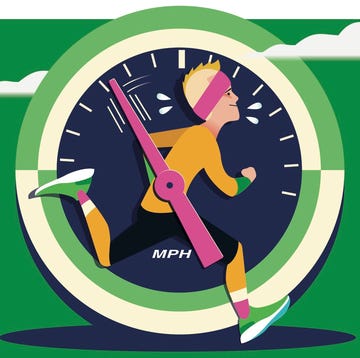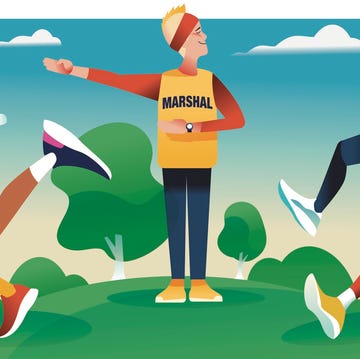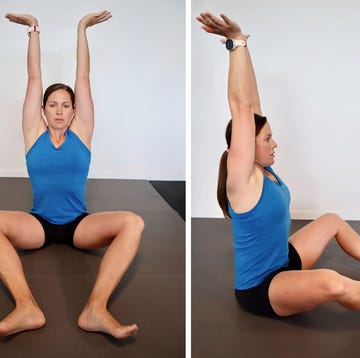We run to release the tension of a bad day. We run when we feel down and need a pick-me-up. We run to silence the inner critic who tells us we aren’t clever, talented or slim enough. And it works. Thanks to those wondrous morphine-like chemicals called endorphins, running is a surefire way to lift your mood when you feel stressed, sad or insecure. But if you use running only as a coping mechanism to escape negativity, you’re missing out. ‘Exercise doesn’t just improve happiness; happiness can improve exercise performance,’ says Alfred Bove, professor emeritus of medicine at Temple University in Philadelphia, US. Sure, not every day can be rainbows and butterflies, but by making an effort to approach your workouts with a positive, upbeat attitude, you’ll run better than if you set out feeling dark. ‘We tend to think of being joyful as a personality trait, but it’s actually a skill you can acquire,’ says sociologist Dr Christine Carter, author of The Sweet Spot: How to Find Your Groove at Home and Work (Ballantine Books). Here’s how to set yourself up for a good run.
Eat well
You’re used to thinking of food as muscle fuel. But good nutrition is also important for feeding your brain, says Dr Drew Ramsey, assistant clinical professor of psychiatry at Columbia University in New York City and co-author of The Happiness Diet (Rodale). ‘It’s impossible to feel positive in a sustained way if you’re low on nutrients such as magnesium, omega-3 fatty acids, vitamin B12, iron and vitamin D.’ Mood-boosting foods include kale, oysters, mussels, pumpkin seeds, Greek yoghurt and dark chocolate.
Sleep
It’s hard to feel excited to run when you’re exhausted. Although sleep needs vary, consistently getting less than your optimal amount (usually six to eight hours) can affect how you process a positive experience. In one study, people who were sleep-deprived did not feel happy or proud after an achievement compared with the experience of a group that had had more sleep.
Belly breathe
Activating the vagus nerve – which runs from the brain to the abdomen – produces a calming effect. Deep, controlled ‘belly breathing’ can help stimulate it. Inhale deeply while counting to five, then exhale very slowly while pursing your lips.
Listen to music
It’s well documented that music can distract athletes from pain and fatigue. In fact, Costas Karageorghis, of Brunel University, who has studied the exercise and music connection extensively, wrote in a review of the research that music could be considered a ‘legal performance-enhancing drug’.
Mantra up
Negative thoughts (such as ‘This is boring’, ‘I don’t want to do this’ and ‘I’m just not fit enough’) will increase muscle tightness and this, in turn, intensifies the sensation of pain, says Jim Afremow, author of The Champion’s Mind: How Great Athletes Think, Train, and Thrive (Rodale). At the start of a run or race – or whenever you hit a rough patch – repeat a positive phrase over and over, such as, ‘Stay strong’, ‘Light and quick’ or ‘Relax and roll’.
Be social
Pre-race jitters can sap you of energy and hurt your performance. Afremow says it’s a good idea to chat to other runners at the starting area about their training and what they hope to accomplish in the race. ‘It gets you out of your head and distracts you by focusing on them,’ he says. Plus, research shows that offering encouragement to others improves your own mood and well-being.
Buy a good time
Experiential purchases – but, sadly, not materialistic ones – have been shown to boost happiness levels. Booking a running or fitness holiday in an exciting place, signing up for a fun run with a group of buddies or treating yourself to a relaxing massage after a hard period of training can help you feel more positive about your running life.
Explore nature
Trade your time on the treadmill for the trails whenever you can. Being in the great outdoors improves cognition, mood and health. One study found that simply looking at a lake or a river can induce feelings of calmness. Plus, increasing vitamin D (the sunshine vitamin) by absorbing the sun’s rays helps produce a happier disposition. And you don’t even have to be outside to feel the benefits of nature. A study at Rutgers University, US, found that receiving flowers produced heartfelt smiles in study subjects, and they also reported greater levels of happiness for the following three days.













